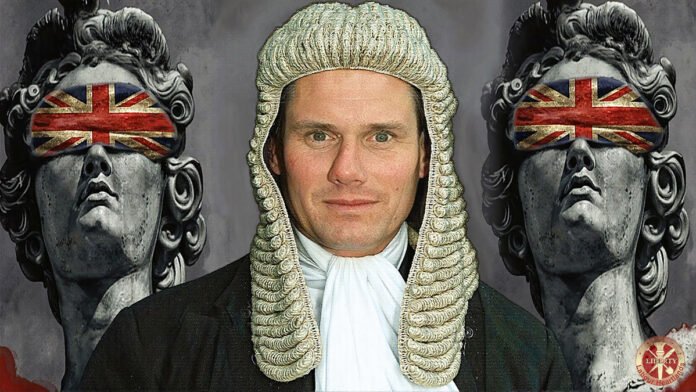The Jury: On Trial, and Under Threat
🎧 AI Audio Trial: The Last Jury (MP3)
Today, Parliament debates the quiet dismantling of eight centuries of democratic justice, where the Jury itself is on trial and under threat.
It comes as Parliament convenes to debate the findings and proposals of the Independent Review of the Criminal Courts, we witness the quiet dismantling of a cornerstone of British democracy. This isn’t the dramatic overthrow of a coup, but a death by a thousand cuts, veiled in the mundane language of “administrative reform” and “efficiency.” These seemingly benign terms mask a profound assault on the right to trial by jury.
This is more than a mere cost-saving exercise or a quick fix to the mantra of “justice delayed is justice denied.” It is a calculated step towards a more authoritarian future, where fundamental rights are eroded in the name of expediency. The cornerstone of our democracy and the right to Trial by Jury is under attack.
Perhaps most insidiously, we find ourselves governed by a Parliament populated with barristers and legal professionals who have ushered in the age of lawfare, a dystopia of silence and conformity where basic civil rights are systematically removed by those who claim to protect them. We have entered the rule of lawyers, where the legal profession becomes judge, jury, and executioner of any crime, and crime itself becomes whatever they decide it to be. This is not the impartial administration of justice but the consolidation of power in the hands of a professional class that has forgotten that law exists to serve the people, not the other way around.
The Anchor of Our Constitution
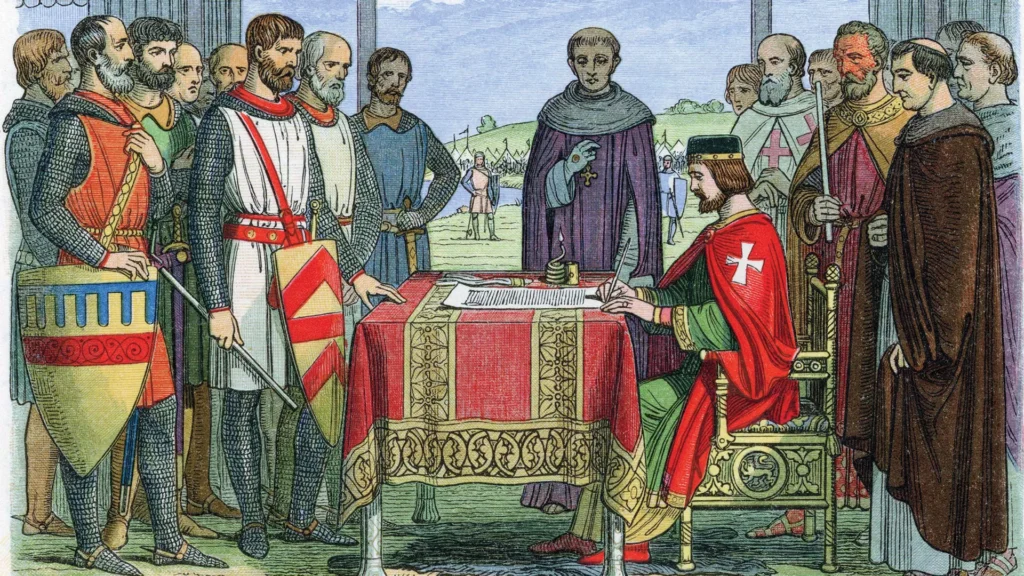
To grasp the true stakes, we must look beyond the sterile terminology and recognise the deep historical struggle that forged this vital safeguard. The right to trial by jury is not simply an administrative feature; it is a bedrock principle of our democracy, stretching back to Magna Carta in 1215. As enshrined in that foundational document, “no free man should be imprisoned or stripped of his rights… except by the lawful judgment of his equals.” This, in essence, is the very definition of the right to trial by jury.
Throughout history, ordinary people have fiercely defended this right against the encroachments of state power. Figures like John Lilburne, the indomitable Leveller and quintessential martyr of judicial resistance, understood this intrinsically. Tried repeatedly for seditious libel, Lilburne consistently challenged the legitimacy of courts that denied these fundamental rights. He famously declared:
“I know nothing that makes a man a Magistrate over me but law, and while he walks by the rules of that Law which make him a Magistrate, I shall own him as a Magistrate, but when he tramples it under his feet, and walks by the law of his own will, I for my part in such a condition cannot own him for a Magistrate.”
These were not privileges granted by a benevolent ruling class, but hard-won victories by ordinary citizens, a fundamental assertion of their rights against institutional tyranny.
Ironically, a distant relation of John Lilburne, Thomas Jefferson, also grasped the profound connection between democracy and justice that trial by jury represents. Jefferson eloquently captured this in a letter to Thomas Paine, stating, “I consider trial by jury as the only anchor ever yet imagined by man, by which a government can be held to the principles of its constitution.” Our “colonial cousins” understood this truth, and Britain would do well to remember it.
The Leveson Recommendations: Death by Administrative Decree

The Independent Review acknowledges a substantial crisis: the Crown Court’s open caseload has reached around 75,000 cases by December 2024, more than double the figures from 2019. Trials are now being listed as far ahead as 2029. The review highlights the devastating impacts of these delays on victims, witnesses, and defendants, and explicitly states that “greater financial investment on its own, without systemic reform, cannot solve this crisis.”
However, the proposed “solution” involves the systematic dismantling of jury trial rights. Most tellingly, the report argues there is “no constitutional or indeed any form of general common law right to trial by judge and jury,” asserting that neither Magna Carta nor the European Convention on Human Rights provides a legal basis for such a claim. This interpretation directly challenges centuries of legal tradition and public understanding.
Sir Brian Leveson’s proposals read like a masterclass in constitutional erosion disguised as technical adjustment:
The Crown Court (Bench Division): A new division where a judge sits alongside two magistrates, without a jury. This would potentially hear “all either way offences,” with a presumption of bench trial for cases carrying sentences of three years or less.
Recommendation 14: Remove the right to elect jury trial for certain low-level offences with maximum sentences of two years, reclassifying either-way offences to “summary only” for magistrates’ courts.
Recommendations 43-45: The mask truly slips here. Defendants would be “allowed” to elect trial by judge alone, as if abandoning a fundamental right were a privilege. Serious fraud cases would automatically be tried by judge alone, defined by “hidden dishonesty or complexity that is outside the understanding of the general public.” Judges would gain power to direct judge-only trials in cases of “anticipated exceptional length or complexity.”
The language is telling: citizens are apparently too stupid, too busy, or too expensive to be trusted with complex cases. The same citizens who elect governments and make life-and-death decisions as civil jurors are suddenly deemed incapable of understanding financial evidence. This is not judicial efficiency, it is judicial contempt for democratic participation.
Among the recommendations are:
- A reclassification of certain offences
- The creation of a new division of the Crown Court with two magistrates and a judge to handle “less serious offences”, which would include some theft, burglary, and fraud offences
- Greater use of out of court resolutions – which would allow the police to deal quickly with lower level, often first time offending – including increased use of cautions and conditional cautions
- Removal of the right to elect trial in cases where the maximum sentence is two years’ imprisonment with reclassification of some offences to “summary only” (meaning they will only be heard in a magistrates’ court)
- The threshold for criminal damage being dealt with as a summary only offence to be increased from £5,000 to £10,000.
- Maximum sentence reduction increased to 40% for guilty pleas at first opportunity, encouraging quicker case resolution
- Judge-alone trials introduced either by election on the part of the defendant or for the most complex cases
The Two-Tier Nightmare: Justice as Privilege
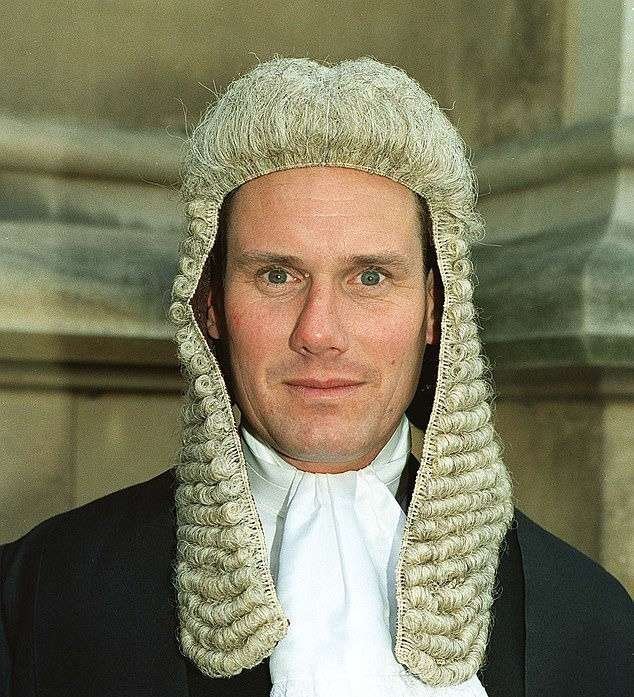
What looms is a two-tier justice system disguised as administrative reform… the implications, a businessman charged with fraud worth hundreds of thousands would face a single judge, deemed too complex for a jury. A working-class defendant charged with theft worth £50 would face magistrates, deemed too minor for jury consideration. The wealthy, with expensive barristers, would navigate a system designed around judicial convenience. The poor would be processed through an administrative conveyor belt.
The report claims these changes would save approximately 9,000 sitting days annually, with judge-only trials saving 20% of Crown Court time. But this treats justice as a manufacturing process where the goal is maximum throughput at minimum cost.
Democracy is expensive. Constitutional protections are time-consuming. These are features, not bugs, deliberate inefficiencies designed to prevent the state from steamrolling individual rights in the name of administrative convenience.
The Democratic Deficit: When Experts Know Best
Perhaps most troubling is the implicit assumption underlying these reforms: that ordinary people cannot be trusted with complex decisions, that expertise should trump democratic participation, that efficiency should override constitutional principle.
This represents a profound philosophical shift from democratic governance toward technocratic rule. The same logic that deems people too stupid to understand fraud cases could easily extend to other areas: too ignorant to vote on economic policy, too emotional to decide on foreign intervention, too prejudiced to serve on planning committees.
Who decides what is “outside the understanding of the general public”? Judges? Civil servants? The same experts who assured us that financial derivatives were perfectly safe, that surveillance was limited and proportionate, that algorithmic systems were neutral and fair?
The Slippery Slope: Today’s Exception, Tomorrow’s Rule

The proposals include seemingly reasonable exceptions and safeguards, but institutional creep is as predictable as gravity. Today’s exception becomes tomorrow’s standard practice. The criteria for “complex” cases will expand. The threshold for “exceptional length” will lower. The definition of cases “outside public understanding” will broaden.
Within a generation, jury trial will become the exception rather than the rule, reserved for a narrow category of straightforward cases that judges cannot be bothered to hear themselves. The right will not be formally abolished; it will simply wither through administrative attrition.
Ghosts of the Star Chamber

We’ve been here before. The Star Chamber, which operated from the late 15th century until its abolition by Parliament in 1641, stands as a chilling reminder of what justice becomes when stripped of democratic oversight. This secretive court, meeting in a room decorated with stars at Westminster Palace, dispensed royal justice without juries, without the right to confront accusers, and without traditional common law protections.
Presided over by privy councillors and judges, it became the instrument through which monarchs punished political opponents, silenced critics, and enforced conformity through arbitrary decree. The Star Chamber’s proceedings were swift, efficient, and terrifyingly predictable, precisely the qualities that made it so dangerous to liberty.
Its abolition became one of the great constitutional victories of the English Civil War, with Parliament recognising that any court operating without jury oversight inevitably becomes an instrument of tyranny. The very phrase “star chamber proceedings” entered our language as a synonym for arbitrary, secretive justice, a warning that echoes ominously as we consider removing jury trials from our own system.
The Historical Echo: How Liberty Dies

If that’s not enough, more recent history offers uncomfortable parallels. The Nazi regime’s initial legal reforms were presented as efficiency measures, streamlining a supposedly cumbersome system inherited from Weimar. The gradual replacement of jury trials with judge-only proceedings was justified by complexity, cost, and expertise.
Closer to home, the suspension of jury trials in Northern Ireland during the Troubles, initially presented as temporary for exceptional circumstances, became normalised for decades. Once removed, rights tend to remain absent.
The Leveson proposals follow this familiar pattern: present the removal of rights as technical adjustment, emphasise practical benefits, and rely on public indifference to constitutional principle. Most people will never face serious criminal charges; why should they care about theoretical jury rights?
This misses the fundamental point that constitutional protections exist not for the majority who will never need them, but for the minority who will. The right to jury trial is the legal equivalent of a smoke detector, useless until the moment it becomes essential.
The Magistrates’ Mirage
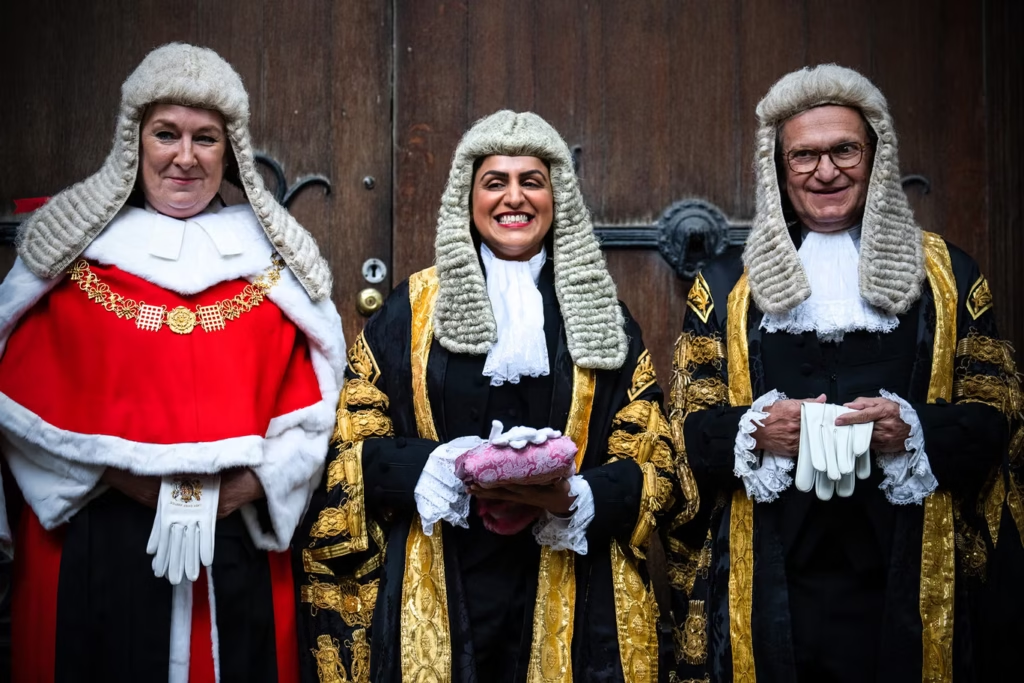
Leveson’s defenders will point to magistrates as democratic representatives serving their communities. This fundamentally misunderstands what jury trial represents. Magistrates, however well-intentioned, become part of the state apparatus the moment they accept their commissions. They are trained, guided, and supervised by the very system they are meant to check.
A jury, by contrast, remains genuinely independent. Twelve citizens plucked from ordinary life, accountable to no one but their consciences, free to nullify unjust laws or refuse convictions that offend their sense of justice. This is precisely why authoritarian systems have always sought to eliminate juries: they represent the unpredictable, uncontrollable voice of the people.
The increased caseload would exacerbate existing pressures on magistrates’ courts. In 2023/24, only 13% of magistrate appointments came from ethnic minorities, compared to 18% of the general population. Magistrates also tend to be older, with 81% over 50, compared to 43% of the general population. This demographic skew raises serious questions about representativeness in a system handling most criminal cases.
The Real Purpose: Control Disguised as Reform

Strip away the rhetoric of efficiency and modernisation, and the true purpose becomes clear: creating a justice system more amenable to state control, more predictable in its outcomes, more efficient at processing dissent.
Juries are unpredictable. They acquit defendants that judges would convict. They refuse to enforce laws they consider unjust. They represent the chaotic, uncontrollable voice of democratic conscience in a system increasingly designed around administrative convenience.
Judge-only trials, by contrast, are predictable, efficient, and manageable. Judges can be trained, influenced, and pressured in ways that juries cannot. They understand the “bigger picture,” the “public interest,” the need for “consistency.” They are, in short, reliable instruments of state policy in ways that citizen juries never can be.
However, it is precisely the collective deliberation of a diverse jury that acts as a bulwark against unconscious bias and ensures that justice is seen to be done by the community itself. And let’s not forget the inconvenient truth: you can blackmail, bribe, or threaten a single judge, but not twelve good people.
A Constitution Under Siege
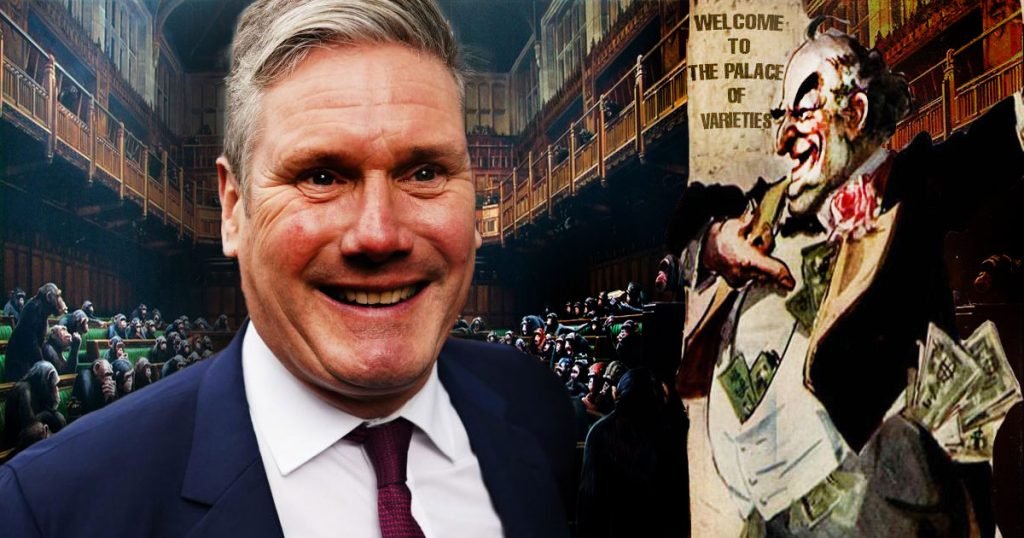
The Leveson proposals are not isolated reforms but part of a broader pattern of constitutional erosion. The gradual removal of jury trials joins the expansion of surveillance powers, restriction of protest rights, erosion of parliamentary sovereignty, and concentration of executive power as symptoms of a deeper malaise.
We are witnessing Britain’s transformation from a democracy rooted in constitutional tradition to an administrative state governed by expert opinion and bureaucratic convenience. The language remains democratic, “reform,” “modernisation,” “efficiency”, but the substance is increasingly authoritarian.
This is the language of authoritarian creep: the gentle, reasonable voice that explains why ancient liberties must be sacrificed on the altar of modern necessities. It is the same voice that justified warrantless surveillance for counter-terrorism, algorithmic policing for public safety, and social media monitoring for hate speech prevention.
The Choice Before Us
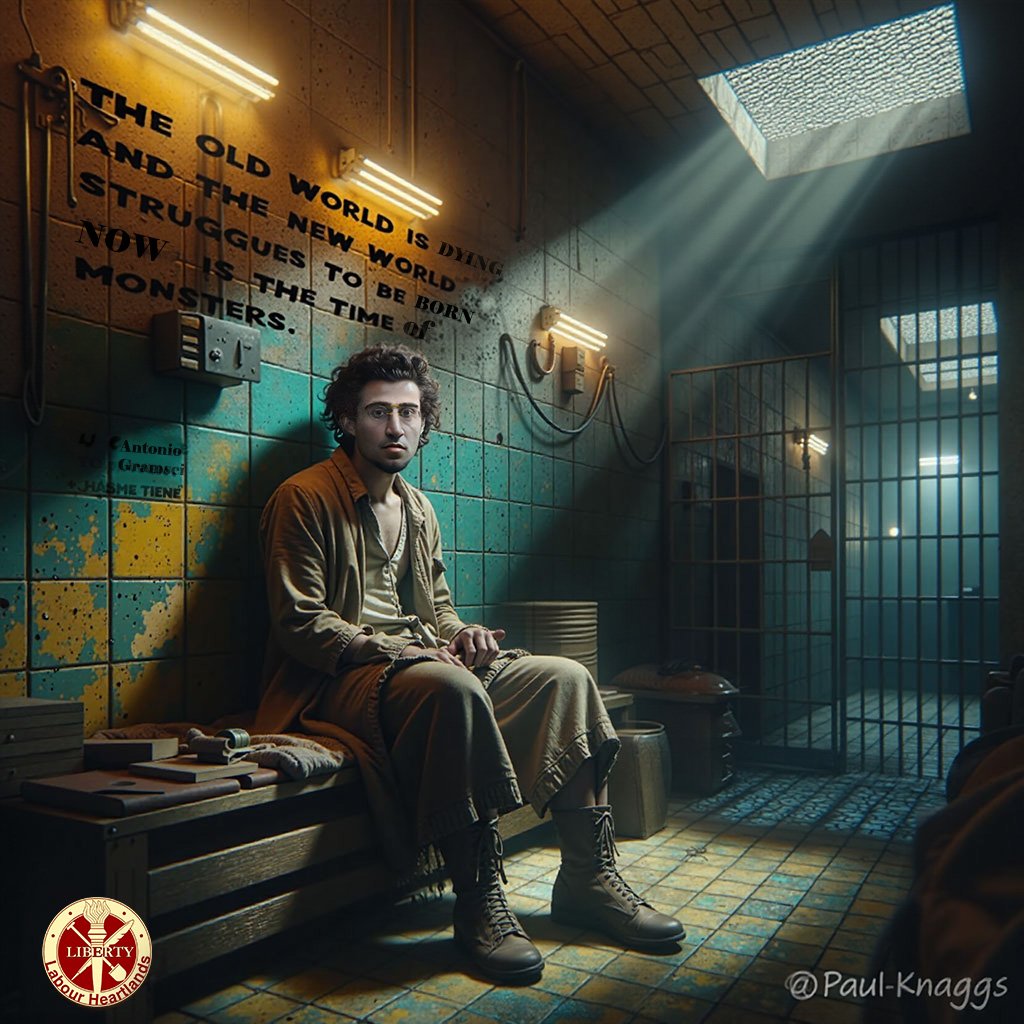
Parliament’s debate today represents a moment of choice about the kind of society we wish to inhabit. Do we want a system where justice is administered by experts according to bureaucratic efficiency, or do we insist on retaining the messy, expensive, unpredictable democracy of trial by jury?
The financial crisis facing our courts stems not from excessive rights but from deliberate underfunding. A decade of austerity has hollowed out the justice system, creating artificial pressures now being used to justify removing fundamental protections.
This is disaster capitalism applied to constitutional law, create a crisis through underfunding, then use that crisis to justify radical restructuring.
Eight centuries ago, a group of barons forced a king to acknowledge that “no free man should be imprisoned or stripped of his rights except by the lawful judgment of his equals.” Today, legal experts seek to persuade Parliament that such ancient notions are obstacles to modern justice.
The proposed reforms strike at the heart of a principle fought for across generations: that justice should be rendered by one’s peers, not by bureaucratic decree. This is not about efficiency; it is about preserving the democratic character of our justice system.
If we allow these reforms to pass without serious challenge, we will wake up one morning in a country that still calls itself democratic but has quietly abandoned the institutional foundations that make democracy possible. By then, of course, it will be too late. The last jury will have been dismissed, the last citizen judge sent home, the last unpredictable element removed from the smooth operation of administrative justice.
Today, as Parliament debates these proposals, we must remember the words of John Lilburne and Thomas Jefferson. The right to trial by jury is the anchor of our constitution, and its erosion is a direct threat to the very foundations of a free and just society. The choice should not be difficult. But in an age when efficiency has become the supreme virtue and expertise the highest authority, even the most fundamental constitutional principles require active defence.
That is the future that Starmer’s government offers us. Whether it is the future we choose to accept remains, ‘for now‘, up to us.
Support Independent Journalism Today
Our unwavering dedication is to provide you with unbiased news, diverse perspectives, and insightful opinions. We're on a mission to ensure that those in positions of power are held accountable for their actions, but we can't do it alone. Labour Heartlands is primarily funded by me, Paul Knaggs, and by the generous contributions of readers like you. Your donations keep us going and help us uphold the principles of independent journalism. Join us in our quest for truth, transparency, and accountability – donate today and be a part of our mission!
Like everyone else, we're facing challenges, and we need your help to stay online and continue providing crucial journalism. Every contribution, no matter how small, goes a long way in helping us thrive. By becoming one of our donors, you become a vital part of our mission to uncover the truth and uphold the values of democracy.
While we maintain our independence from political affiliations, we stand united against corruption, injustice, and the erosion of free speech, truth, and democracy. We believe in the power of accurate information in a democracy, and we consider facts non-negotiable.
Your support, no matter the amount, can make a significant impact. Together, we can make a difference and continue our journey toward a more informed and just society.
Thank you for supporting Labour Heartlands
